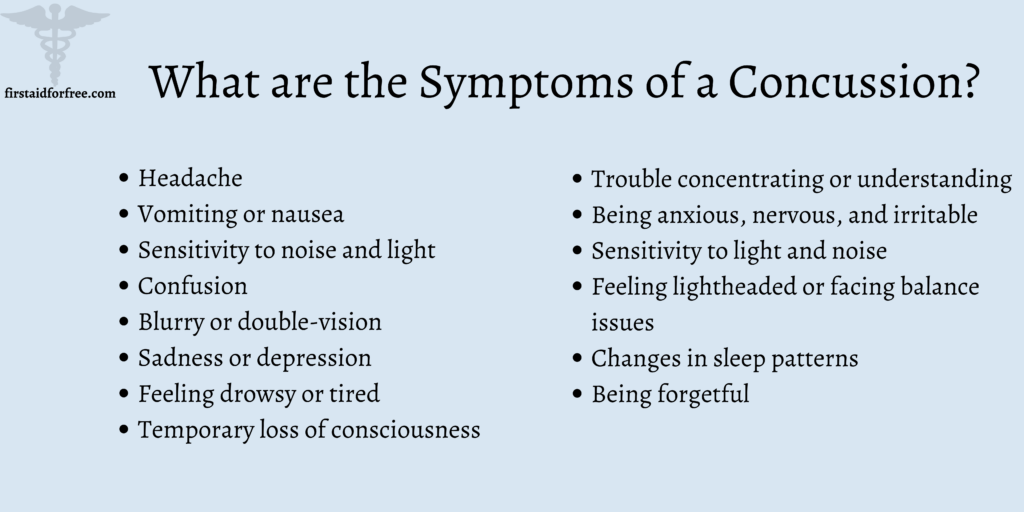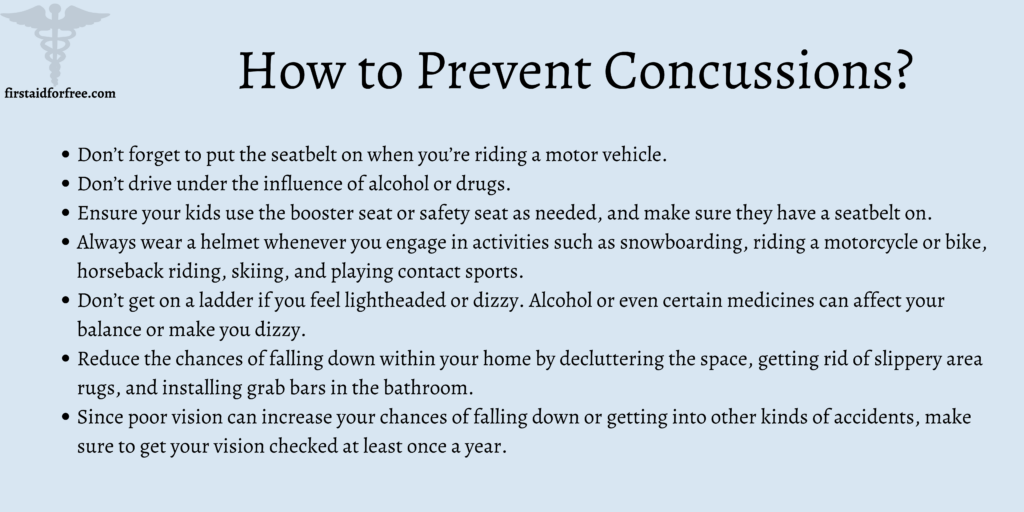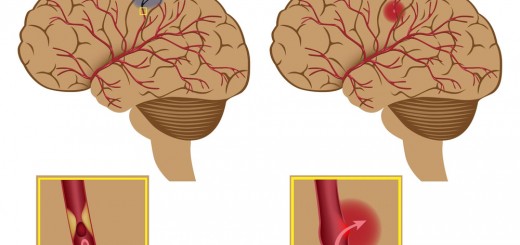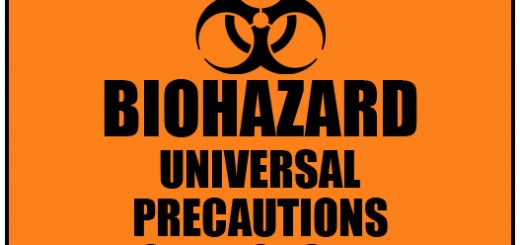First Aid for Concussion: How to Respond Quickly and Safely?
Did you know that as per the Centers for Disease Control and Prevention (CDC), somewhere between 1.6 to 3.8 million sports and recreation related concussions take place in the United States every year?
A concussion can be defined as a mild traumatic brain injury. It’s usually caused by a jolt, blow, or bump to the head, which prevents the brain from functioning normally. People who experience concussions once are usually more likely to experience them again.
Some of the situations where a person could require emergency treatment due to a concussion include Assaults, Motor vehicle accidents, Falls, and Sports injuries. I have seen grown-up adults as well as young children experiencing concussions during many such situations.
Hence, it is important to make yourself aware of the signs of a concussion that will eventually help you or your loved ones struggling with concussion find proper guidance toward the next step or way of treatment.
Are you a bit unsure as to how to treat a concussion? If yes, then I will be discussing several crucial aspects related to first aid for concussion in this article, including the symptoms, diagnosis, treatment, and prevention.
What are the Symptoms of a Concussion?
The common symptoms of concussions are:
- Headache
- Vomiting or nausea
- Sensitivity to noise and light
- Confusion
- Blurry or double-vision
- Sadness or depression
- Feeling drowsy or tired
- Temporary loss of consciousness
- Trouble concentrating or understanding
- Being anxious, nervous, and irritable
- Sensitivity to light and noise
- Feeling lightheaded or facing balance issues
- Changes in sleep patterns
- Being forgetful
When to Seek Medical Help?
Call 911 immediately or get a child or adult to the hospital if they witness any of the following symptoms in the days or hours after they experience a head injury:
- A headache that keeps getting worse with time, or a severe headache.
- Loss of consciousness (for greater than a minute).
- Bloody discharge from the ears.
- Slurred speech.
- Constant vomiting.
- Problems with walking or loss of balance.
- Irritable, bizarre, or unusual behavior.
- Severe dizziness.
- Fainting, difficulty waking up from sleep, or intense drowsiness.
- Pupils that are bigger in size than usual or not equal in size.
- Tingling, weakness, or numbness in legs or arms.
- Convulsions or seizures.
- Confusion, which keeps accelerating.
- Watery and clear discharge from the ears or nose.
Make sure emergency care is provided to an infant if they display any of the following symptoms:
- Seizures
- Vomiting.
- Inability to open their eyes on their own.
- Difficulty waking up from sleep.
- Blood or discharge coming out of their ears or nose.
- Loss of consciousness.
- Skull fracture.
- Swelling of the head.
- Bruising, especially behind the ears or around the eyes.
- Swelling of the soft spot.
How to Diagnose a Concussion?
If someone needs to visit an emergency room or a doctor for a concussion, their doctor will ask:
- How the injury took place
- The symptoms they are experiencing
- How severe the symptoms are
A physical examination will be conducted by the doctor, which could include a vision and balance test. If there are severe symptoms or serious impact involved, one might have to undergo a CT scan or MRI scan of your brain so that it can be checked for damage.
If a person experiences seizures after a concussion, your healthcare provider might perform an electroencephalogram, which helps in monitoring a person’s brain waves.
How to Treat a Concussion?
In order to treat concussions, it’s important to get lots of rest. Take breaks and naps during the day if required, and ensure to get plenty of sleep at night. You might be asked to avoid certain sports and physical activities until you recover.
I had once experienced a very unfortunate concussion in my head after coming from work. It was terribly painful and unbearable. However, with the help of my friend, I was immediately taken to a concussion specialist who treated me with an effective first aid for concussion.
In such a case, the doctor might give you certain medicines that you can consume if you have a headache. If your symptoms get worse with time or don’t go away soon, you might have to see a doctor who is a specialist in concussions.
How to Prevent Concussions?
There are certain simple steps you can take and a few things you can remember to reduce the chances of experiencing a concussion. They are as follows:
- Don’t forget to put the seatbelt on when you’re riding a motor vehicle.
- Don’t drive under the influence of alcohol or drugs.
- Ensure your kids use the booster seat or safety seat as needed, and make sure they have a seatbelt on.
- Always wear a helmet whenever you engage in activities such as snowboarding, riding a motorcycle or bike, horseback riding, skiing, and playing contact sports.
- Don’t get on a ladder if you feel lightheaded or dizzy. Alcohol or even certain medicines can affect your balance or make you dizzy.
- Reduce the chances of falling down within your home by decluttering the space, getting rid of slippery area rugs, and installing grab bars in the bathroom.
- Since poor vision can increase your chances of falling down or getting into other kinds of accidents, make sure to get your vision checked at least once a year.
FAQs
How long does a concussion last?
A concussion can last for a few days or weeks.
Can I sleep with a concussion?
Yes, you can sleep even if you have a concussion.
Can you watch TV with a concussion?
Adults are advised to stay away from screen time for 48 hours after they suffer a concussion.
What are the things to avoid after a concussion?
Some of the things that can worsen the symptoms of a concussion are alcohol, drugs, loud noises, and exposure to bright lights.
Is it normal to feel tired after a concussion?
Yes, it’s extremely normal to feel tired after a concussion.
Conclusion
The following are the key takeaways from this article:
- Concussions can be caused by motor vehicle accidents, falls, sports injuries, and assault.
- Some of the common symptoms of concussions include headache, confusion, feeling tired, and temporary loss of consciousness.
- The most vital way to treat a concussion is by getting lots of rest and proper sleep.
- It’s necessary to get your vision checked at least once a year as poor vision can often lead to concussions.
- One might have to get an MRI scan or CT scan done to get diagnosed properly if they have a concussion.
- The first aid for concussion includes avoiding physical activities and sports.







